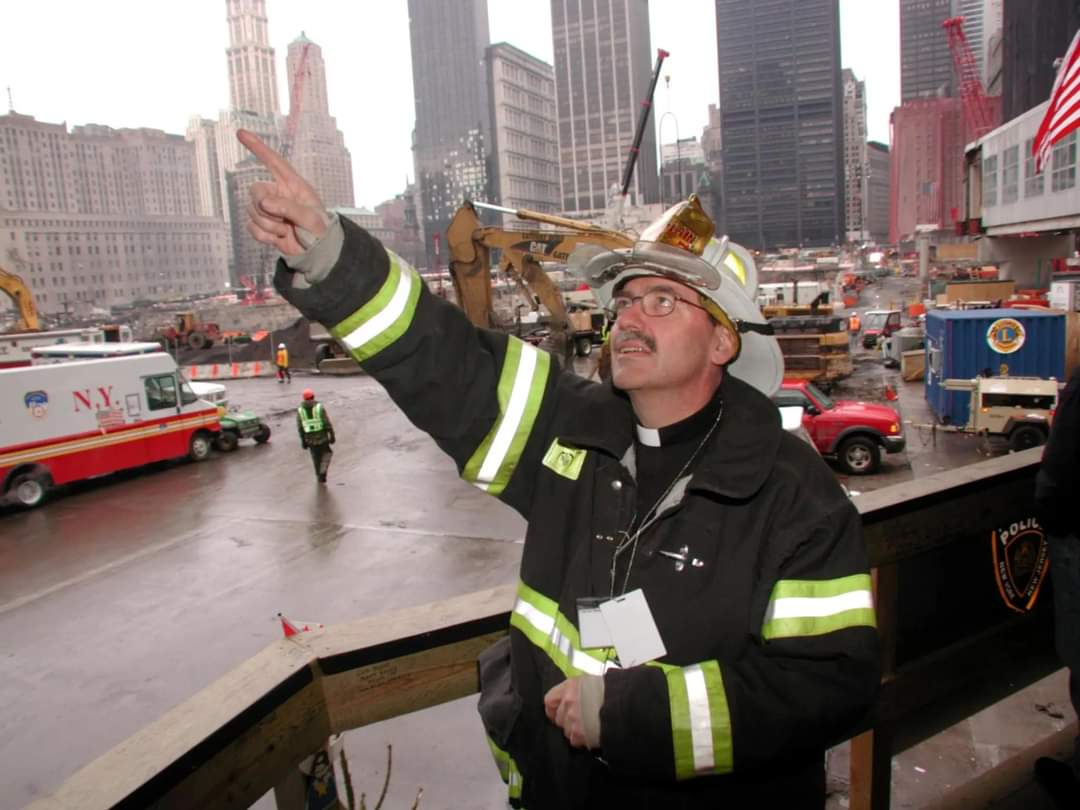
PROSPECT HEIGHTS — Msgr. John Delendick, the FDNY chaplain who passed away from a 9/11-related cancer on Thanksgiving Day, joins a sad and growing list of people succumbing to illnesses they suffered due to their service at the World Trade Center site in the weeks and months following the 2001 attack.
According to the World Trade Center Health Program, more than 4,000 first responders and other workers who toiled at the site have passed away from cancer, respiratory illnesses, heart disease, and other ailments in the years since the terrorist attack.
That’s a much larger number of deaths than the 2,974 people who were killed on the day of the attack.
The illnesses stem from the toxic air that first responders, workers, and volunteers breathed in at the site following the collapse of the Twin Towers, which spewed ash, debris, asbestos, metal, concrete, and glass into the air, World Trade Center Health Program officials said.
The FDNY, for which Msgr. Delendick served as a chaplain for 27 years, has been particularly hard hit. The department reached a grim milestone in September when the number of deaths of its personnel post-9/11 reached the same total of members killed on the day of 9/11 — 343.
In a statement, FDNY Commissioner Laura Kavanagh called it a “somber, remarkable milestone,” adding that “we have long known this day was coming, yet its reality is astounding just the same.”
As the death toll rises, first responders and others continue to seek medical care for serious illnesses. As of September, 86,481 first responders and 40,945 workers and volunteers registered for the World Trade Center Health Program.
Established under federal legislation in the James Zadroga 9/11 Health and Compensation Act of 2010, the program provides medical care and health monitoring to enrollees. The law is named after James Zadroga, an NYPD detective who died of respiratory disease in 2006.
According to Michael Barasch, a partner in Barasch & McGarry, a law firm that has represented more than 30,000 World Trade Center clients, 69 different cancers have been traced to toxins at the site.
In addition to physical ailments, survivors and their families have dealt with mental health issues from the trauma. The September 11 Families Association, an organization formed to assist families of 9/11 victims, has a list on its website of the various emotional support services that are available. For more information, visit: 911families.org/resources/support-services
